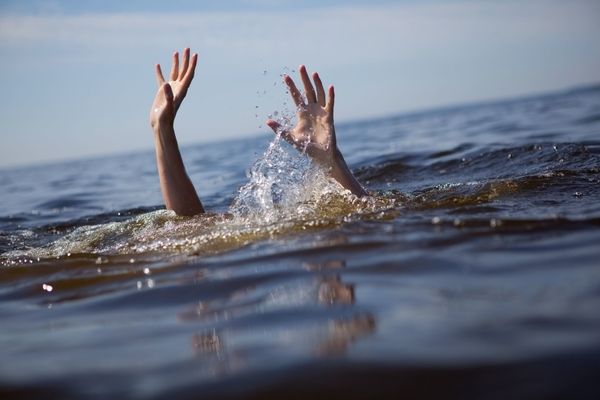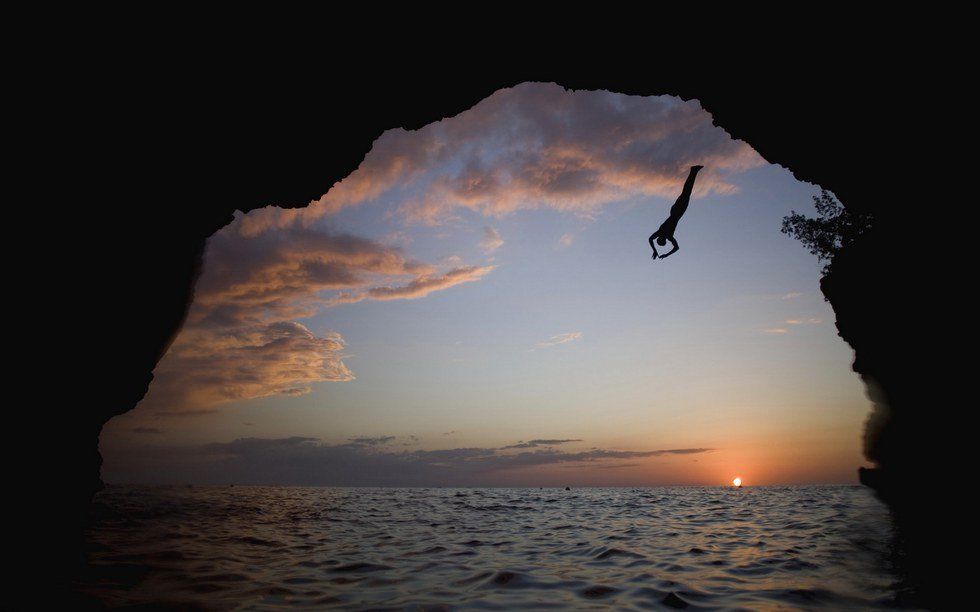By now, it’s pretty clear that I have a thing for quirky quotes and phrases. So, if you’re not a fan of my many articles whose titles begin with a verb written in the infinitive tense and go on to break down and define phrases that inspire good life choices, then I suppose you can x-out. But if you enjoy reading how I see the world through my little life tips, then read on my fellow inspired intellectuals.
If you’ve ever heard the French phrase “L’appel du Vide,” you might also know that it’s a much uglier phrase than what it sounds like because it refers to suicidal thoughts. I wasn’t aware of this when I first came across the phrase a few weeks ago. And for those of you who have been keeping up with my blog, you probably know by now that I like to make my own definitions to puzzling abstract concepts.
I first came across the phrase when shuffling through the Ithaca College Stillwater Magazine’s 2013-2014 issue. I opened up to a random page and decided I’d read the first thing I saw, which just so happened to be the quote “L’appel du Vide.” It was followed by a poem in which the author, Meg Ritchey, attempted to define the phrase through her own interpretation of it. Similar to how I like to write about my interpretation of things, I love to read how others see them as well.
I was struck by her first stanza which read: “There’s a French term: l’appel du vide or, ‘the call of the void’ which describes the urge you sometimes feel, when standing at the edge of a very tall building to just take one more step and let yourself fall out into the air. Not a death wish, but rather a search for some confirmation that we are, indeed, alive.”
I’d rather follow that interpretation of it because the dictionary definition of the phrase just means “suicidal urges.” And I’ve got to agree with Meg, the answer to the call of the void has to be something more valuable and less concrete than suicide.
If we break the phrase down to all literalness, we get “the call of emptiness,” or “a call from nothing,” since “void” means “empty space or nothingness.” So then, what is “the call of the void?” Moreover, how are we to answer it?
I guess the call of the void is the urge we get to do insane things to satisfy whatever emptiness is inside of us. That’s why Collin's Dictionary defines it as, “the instinctive urge to jump from high places.” Like Meg said, it’s not a death wish; it’s not so much a suicidal urge as it is an eager urge to answer the call from nothingness with, well, something.
The answer to the call of the void is something crazy, something daring that makes you feel alive. It’s something to combat the empty feeling we get when we think about our mortality; something that confirms your beating heart and breathing air and livelihood so much that you feel essentially immortal.
For me, running has always been my response to the call of the void in it’s own weird way in that it answers the question the phrase begs, by screaming, “Yes, I am most certainly alive.” As poet, Sarah Kay, once said, “getting the wind knocked out of you is the only way to remind your lungs how much they like the taste of air.” Not a lot of people can say they enjoy running for that reason, but in that weird and kind of morbid sense, that’s exactly why I love it. It’s the feeling when I finish a race, when my body aches like death and wreaks of pain that I find myself somehow feeling most alive. Because again, the answer to the call of the void is something so drastic that it ceases death’s looming advances with every fiber of livelihood in our beings and halts it in it’s track with a large tombstone engraved with the words: not today.
Speaking of gravestones, there’s this poem (I know, you were hoping my segue wouldn’t lead into another poem, but it did. Too bad.), by Linda Ellis about “The Dash,” which is the title of the poem, that exists between our date of birth and date of death. The poem says that it’s not the dates on our gravestone that matter but the dash that lies between them. For the dash represents all of the days we lived in between, and moreover how we lived them. To quote Ellis, “When your eulogy is being read with your life’s actions to rehash, would you be proud of the things they say about how you spent your dash?”
Not everyone receives the call of the void in their life. Some experience l’appel du vide quite often and others only once or twice. But whether or not you ever actually feel the urge, I hope you choose to act on it anyways. (And if you need advice on ways to answer it, might I suggest reading my article All Who Wander Are Most Definitely Lost?) I hope that your dash is a life larger than life (nope, not a typo), that is, a life you live to constantly defy death and verify life in such a miraculous way that you feel, you guessed it, more alive than ever.





















